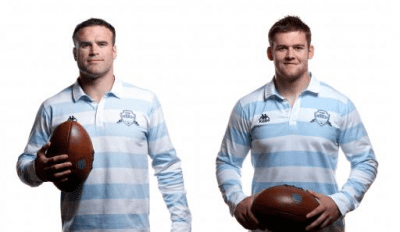
CARDIFF, WALES – At a time when things couldn’t be better for Wales on the international front, things can hardly get worse for the domestic game. The Welsh regions are hemorrhaging both money and players in a painful cycle with a worrisome amplifying effect.
Beginning in September, Jamie Roberts and Dan Lydiate will be plying their trade across the Channel, in the Top 14.George North will make the short move to Northampton, robbing Wales of three of their brightest stars. Though individuals have left for the more lucrative pastures of England and France before, this year marks a fundamental shift in the relationship between the WRU and its players. Previously, leaving Wales for abroad was an aberration, now it has become the norm. Toby Faletau’s decision to extend his contract with the Dragons marks him as the only Welsh Lion under 25 to commit his future to the domestic game.
For the past five years, the Ospreys have been the premier regional side, with the likes of Alun Wyn-Jones, Adam Jones, Ian Evans, and Justin Tipuric leading the side’s efforts to remain relevant in the Heineken Cup. Both Joneses and Evans are out of contract at the end of this year, and the Welsh region’s £3.5 million budget means that retaining all three is an impossible dream. Indeed, keeping even one of the three may prove impossible, given the financial power of the Top 14.
The Cardiff Blues face a similar challenge. Leigh Halfpenny and Sam Warburton are both up for contract extensions at the end of this year. Given the interest French teams have shown in fullbacks that are nowhere near Halfpenny’s quality, and the perennial goal-kicking problems of most French sides, he could easily command a salary in excess of the £500,000 Racing Metro will be paying Jonny Sexton this year. With the financial limitations of the Welsh regions, committing that kind of money to a single player, even one of Halfpenny’s quality, would be folly. Warburton seemingly recognizes the reality of the situation, giving non-committal responses this week to questions about his contract, noting “I’ve still got 12 months, still a relatively long time, so I’ve got a whole season to make that decision.” Reading between the lines, it seems likely that the Lions captain is on his way out the door.
In addition to the relatively simple monetary issues that face the regions and the WRU, complex internal political battles hamper any chance of effectively solving the issues facing the Welsh game. A second attempt to form a Professional Regional Game Board was recently proposed, though it looks unlikely to succeed in any meaningful sense.
The PRGB’s remit supposedly will include regional player contracts and recruitment, academy structures, marketing the regional game, resource management, regional financial planning, and determining the “best” practices for the good of the game. So in other words, its goal is to control every aspect of the game in Wales.

The PRGB sounds like a great idea in theory, bringing every aspect of the Welsh game under one co- operative, mutually supportive roof. However, in practice, the exact same initiative was proposed seven months ago, only to be completely thrown out the window at the first sign of conflict between the regions and the WRU. The PRGB would only work if there was complete agreement on every subject between the WRU and the regions. Ironically, the board wouldn’t need to exist if such a state of affairs existed.
Welsh rugby, like Irish rugby faces a difficult path to the future. Clearly, they need to stop the slow bleeding of players from their regional sides to France, but do so in a manner that is financially responsible. That is a sentence that is easy to write, but extremely difficult to put into practice. However, there is a solution.
One of the main problems with the WRU and other rugby organizations is their determination to try and fix everything immediately. The Welsh would be better served by admitting that this generation of players is lost to the regional sides, and develop a cohesive, comprehensive strategy for the next decade that ensures that the next generation of stars stays in the domestic game. The Welsh need to lay down foundations that will last decades, rather than trying to construct a haphazard short-term plan that prevents the loss of players in the next year. Such a plan would include provisions that enable sides to go above and beyond fixed in stone budgets to retain home-grown players such as Warburton and Hibbard. But these changes need to be implemented gradually and woven into the fabric of the game, rather than seismic conversions in response to an immediate issue. Only by learning from the present can the Welsh prepare for the future.

